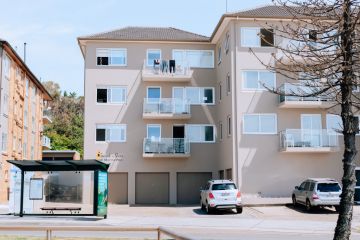More Australians eating into their savings to make ends meet, ME Bank survey finds

More Australians are dipping into their savings to make ends meet as living expenses increase, wages stagnate and mortgage and rental stress remain high, a new survey has found.
ME Bank’s bi-annual Household Financial Comfort Measures report surveys 1500 households to gauge how they feel about their financial situation, including cost of living and household debt.
The report, released on Monday, painted a grim picture with a quarter of Australian households reporting they had less than $1000 saved in the bank.
And nearly 45 per cent of households were in mortgage stress, defined as spending more than 30 per cent of their income on their mortgage.
But there was some good news for tenants off the back of a cooling property market. Two-thirds (67 per cent) spent 30 per cent of their income on rent, down from three-quarters (72 per cent) six months ago.
ME Bank’s consulting economist Jeff Oughton said while more Australians were drawing on their savings to cover day-to-day costs, they were also saving less.
“At the end of the week when you’ve had the bill shock, fuel shock and you’ve paid the banker and the landlord, you’ve got nothing left and have no savings left either,” Mr Oughton said.
The report found the cost of necessities continued to be the major financial concern for households, with more than half reporting it as their biggest financial worry.
- Related: Personal bankruptcies rose 4 per cent in Australia
- Related: More than 2 million Australians private renters
- Related: Rebound in Australian building approvals to improve affordability
About 40 per cent of Australians spent all their income by the end of the week, down from 43 per cent six months ago, while 11 per cent overspent, up from 8 per cent six months ago.
“If they run into a financial emergency, or even worse they lose their job, they’re very vulnerable and at the end of each week after you pay your banker and all your other bills, about 50 per cent of people don’t have any savings left,” he said.
The survey found 38 per cent of people were worried about their debt. This was significantly higher among Sydney residents (46 per cent) and those living in Melbourne (40 per cent).
“Homes are much more expensive in Sydney and Melbourne. Even though incomes are higher, mortgages are also much bigger,” Mr Oughton said.
Roughly four in 10 people with debt reported they would not be able to manage the minimum repayment.
He said Australians were at a potential tipping point where a small personal change, such as a job loss, or a macroeconomic shock, such as a trade war, would hurt a lot of households.
“Those balances in the banks are getting run down. Most people will be able to absorb small rate rises but not big rises. At the margin people are getting a bit more vulnerable,” Mr Oughton said.
Generational divide
The survey found Gen X (people aged 35-54) experienced the lowest level of financial comfort compared with all other generations.
Baby boomers, in contrast, continued to report the highest financial comfort of all generations due their net wealth, closely followed by Gen Y.
Millennials (Australians aged 18-24) reported the greatest decline, citing concerns with their income, living expensives and debt.
Joanne Yates from St Vincent de Paul Society NSW said the declining financial health of Australians should ring alarm bells.
“The economy is clearly only booming for some. That sense of shared equity is declining. The capacity for an economy to remain buoyant is really limited if people can’t save,” Ms Yates said.
She said it was a “red flag” that so many Australians didn’t have sufficient savings for an emergency.
“If we don’t have that buffer zone then we’re living on crisis edge all the time,” she said.
She said the country’s growth was at stake if prosperity and good fortune was not more equally distributed to Australians.
“Intergenerational capacity to own one’s home is also very limited. We’re facing an emerging generation and subsequent generation who will never own a home in Australia.
“That’s a scary prospect for future generation.”
We thought you might like
States
Capital Cities
Capital Cities - Rentals
Popular Areas
Allhomes
More







